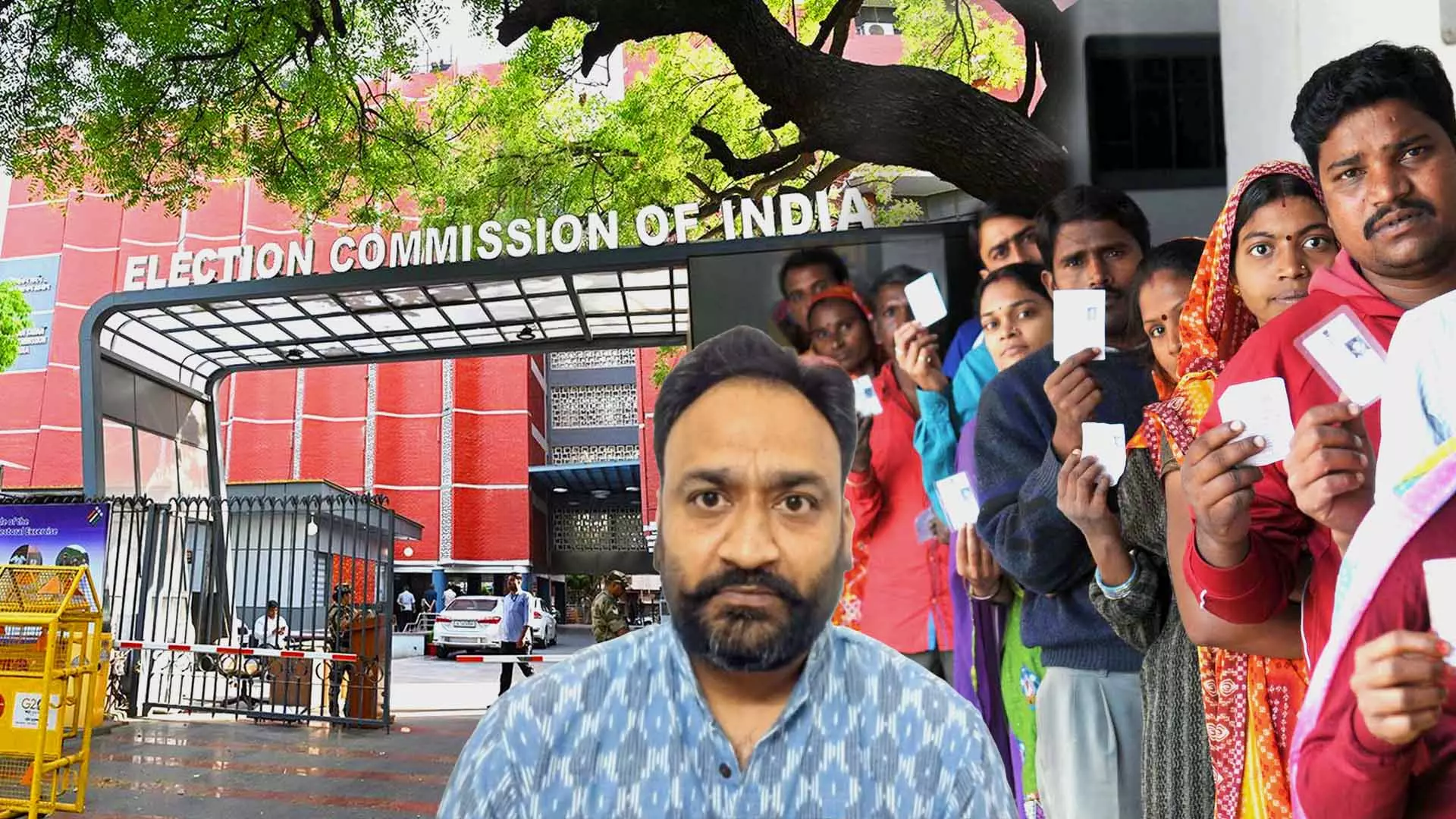
Nationwide SIR: Why are Opposition parties worried and what next? | Interview
The Election Commission’s Phase 2 of the SIR covers 12 states, but concerns arise over timing, transparency, and who gets left out

The Election Commission has announced the second phase of the Special Intensive Revision (SIR) across 12 states, including West Bengal and Tamil Nadu. The move, coming close to key state elections, has triggered concerns about transparency, exclusion, and timing. In a conversation, The Federal's Political Editor Puneet Nicholas Yadav unpacks the implications of this nationwide exercise.
The Election Commission says the second phase of the SIR is meant to clean up voter rolls. But given the controversy around the Bihar SIR, do you see this as a routine process or one with political overtones — especially in Opposition-ruled states?
There will obviously be questions about political motivations behind it, much like when the Bihar SIR was announced. The key issue remains: who are the people being targeted for exclusion, and whether there is a larger motive to remove voters who are more likely to support Opposition parties. Naturally, those concerns will continue to be raised.
While West Bengal, Tamil Nadu, Kerala, and Puducherry — all heading for elections next year — are included in this phase, Assam has been excluded despite being poll-bound. Has the Election Commission explained why?
Yes, the Election Commission has said that since the National Register of Citizens (NRC) process in Assam is still under the Supreme Court’s supervision, the SIR will not be undertaken there for now. They have clarified that a separate SIR will be announced for Assam at a later stage once the NRC process concludes.
This phase comes months before key state elections and ahead of the 2026 delimitation. Could the timing of the SIR have broader political implications beyond just updating voter rolls?
We shouldn’t confuse this with the delimitation process yet because we don’t know when that will begin or conclude. The delimitation can only start after the Census is completed, and that process itself is long and drawn out.
However, irrespective of delimitation, the SIR will likely see political tug-of-war over inclusion and exclusion. Questions will arise over who was left out, who got added, and whether there was duplication of voters—like what happened even after the Bihar SIR, where the final rolls still showed large-scale duplication.
Today, the Election Commission made it clear they won’t use any de-duplication software, putting the onus on citizens to ensure they are not registered twice. Essentially, the burden of maintaining clean rolls has been shifted to the people.
If political parties attempt to manipulate voter lists, the EC, at least for now, has not offered clear answers on how it will prevent such interference.
The EC has repeatedly mentioned “infiltrators” during the Bihar SIR. Has that issue come up again this time?
Yes, that remains one of the most contentious issues. During the Bihar SIR, the Commission and even top BJP leaders—including the Prime Minister—had said the exercise would remove illegal infiltrators. But when the final rolls were published, there were hardly any exclusions, and no data was provided to support claims of detecting illegal voters.
At today’s press conference, the Election Commissioner was asked about this at least three times but evaded the question each time. There were no answers on whether identifying infiltrators remains one of the driving purposes of this nationwide SIR. Naturally, all the concerns that were valid in Bihar remain relevant today as well.
The Commission is relying heavily on technology and public scrutiny. But inconsistencies remain at the ground level. How effective are these digital and booth-level checks?
They can only be as effective as the intent behind the entire exercise. If the process is designed to favour a political party, no amount of technological intervention will ensure fairness.
That’s been the Opposition’s core argument—that the motivations behind this SIR are not neutral. In Bihar, serious questions were raised about how the revision was conducted and concluded, and many remain unanswered.
Saying “we won’t use de-duplication software because it’s the public’s responsibility” is not a valid excuse. It’s the Election Commission’s constitutional duty to deliver clean voter rolls. If they shift responsibility to citizens, then why conduct the SIR at all?
Opposition parties fear that certain communities or regions might face disproportionate exclusion. What safeguards are needed to prevent disenfranchisement this time?
Extreme vigilance is key. After what happened in Bihar, people are more aware now. They should keep all necessary documents ready before the exercise begins on November 4.
Political parties also have a major role to play. They must mobilize their local units to monitor the revision closely and help citizens verify their inclusion. These are the essential safeguards needed to prevent large-scale disenfranchisement.
The content above has been transcribed from video using a fine-tuned AI model. To ensure accuracy, quality, and editorial integrity, we employ a Human-In-The-Loop (HITL) process. While AI assists in creating the initial draft, our experienced editorial team carefully reviews, edits, and refines the content before publication. At The Federal, we combine the efficiency of AI with the expertise of human editors to deliver reliable and insightful journalism.

